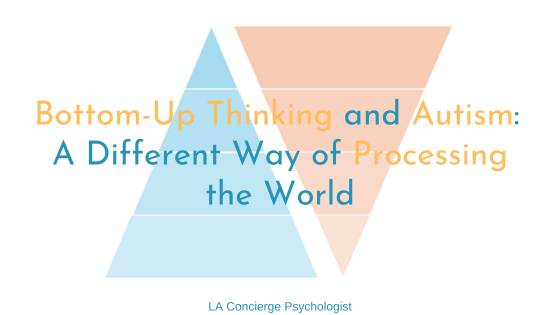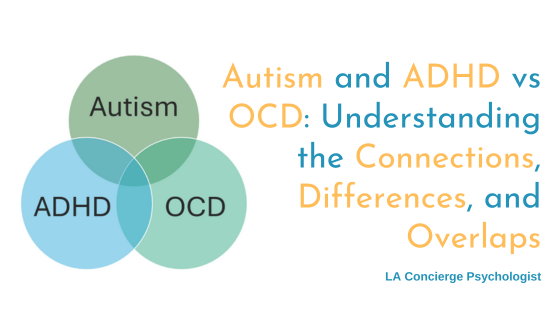It’s not easy being an autistic adult in a neurotypical world. Existing in and navigating a world that isn’t made for you is exhausting. Even mundane activities like grocery shopping can become overwhelming chaos. Without a healthy perspective, a reserve of survival skills, and a dedicated support system, trying to survive the host of environments that don’t accommodate neurodiversity can feel inordinately unfair and isolating.
How do you cope when so much of life seems indifferent to behaviors, perceptions, and interactions that diverge from the “norm”?
You take measures like those below to survive and thrive:
Accept and Appreciate Your Unique Brain & Behavioral Differences
It is very important to understand that your success and ability to succeed in the neurotypical world isn’t a call to cure or fundamentally change you. You can celebrate and appreciate your unique gifts while simultaneously gaining the skills needed to survive in a world built for neurotypical people.
Your differences are to be respected. Your future can be as bright and fruitful as anyone’s with the proper attention, guidance, and commitment. Work with a neurodiversity affirmative, qualified therapist can help you build confidence if you’ve struggled in the past.
Prioritize Adaptive Behaviors
Adaptive behavior enables a person to get along in their environment with greatest success and least conflict with others. It encompasses conceptual, social, and practical activities and skills. They reflect your ability to meet social responsibilities and perform in daily life on an independent level, safely and appropriately.
To survive and thrive on a daily basis you’ll want to identify, sharpen, and practice routinely your real-world skills.
Creating an Independent Home Life You can Live with
Perhaps you had a high level of support over the years. Thus, operating on your own feels natural.
Some autistic adults aren’t so fortunate. They may need to devote time to bolstering their practical life skills. Why? In recent years, studies of thriving neurodiverse individuals show that independent and effective abilities to groom, shop, cook, clean, manage money, socialize, and navigate surroundings is vital.
Furthermore, research indicates that shoring up your adaptive skills is more important than IQ, language skills, and the degree of your autism “symptoms”. Success in the neurotypical world is not about how smart you are. How well you can learn, focus, and change your actions to fit your needs, relationships, and circumstances is key. And these things can be taught.
Making Your Work Life Work for You
Naturally, strong adaptive behavior is key in the workforce as well. Strong life skills matter when it comes to your ability to obtain, maintain, and thrive at a place of employment.
Sometimes it may feel like you can’t thrive in a working environment. However, plenty of autistic people obtain and maintain jobs for a long time. The primary key is to find a working environment that utilizes your strengths. Be more concerned about the fit of your work environment than the prestige of the job.
Successful autistic people also learn to advocate for their needs. This helps them get reasonable accommodations at work to help them succeed. However, advocating for yourself requires you to truly understand your strengths and areas of support. In order to do that, reflect upon your life at school and home to see what helped you succeed. Self-advocating also requires you to effectively communicate what you need to your supervisor or boss. Keep in mind that it helps to give some context to whatever you’re discussing and to frame your ask as “this is what I need to perform optimally”.
Additionally, many working autistic adults find it helpful to get job coaching or mentoring. This is especially helpful in learning the technical and soft skills needed to thrive at work. You can problem-solve issues with your coach and even practice skills with them until they feel comfortable.
Find Your Tribe
Humans are social beings. Anyone who thrives does so because they belong. In a neurotypical world, it can be very lonely and isolating. It feels like you’re in a foreign country, and you’re still learning how to speak the language and figure out their social customs.
As with surviving in a country where you’re a foreigner, it helps if you find open, accepting people who will be your guide. This may be a kind colleague, friend, or professional. Finding people who will embrace you for who you are while helping you navigate the foreign land is very helpful.
Additionally, connect and build relationships with other neurodiverse people. When you feel so different from the rest of the world, it’s invaluable to have friends and acquaintances who understand and live your same experience. You’ll realize that you are not as alone as you think you are.
Finally, Surround Yourself with Helpers
It is crucial that you stay connected and supported.
Neurodiversity doesn’t need to mean that you have to feel alone, limited, or powerless. Ever. The world can be yours to engage and contribute to in very real and appreciable ways.
For the best and most positive life outcomes, you need advocacy and people who can help you employ systematic life and work strategies.
Let’s talk about those things together. We specialize in autistic adults, are neurodivergent-affirmative, and available to help. Please read more about our work with autistic adults and send us a message or book a free 20 minute consultation call with Dr. Barajas or Dr. Goldman.



